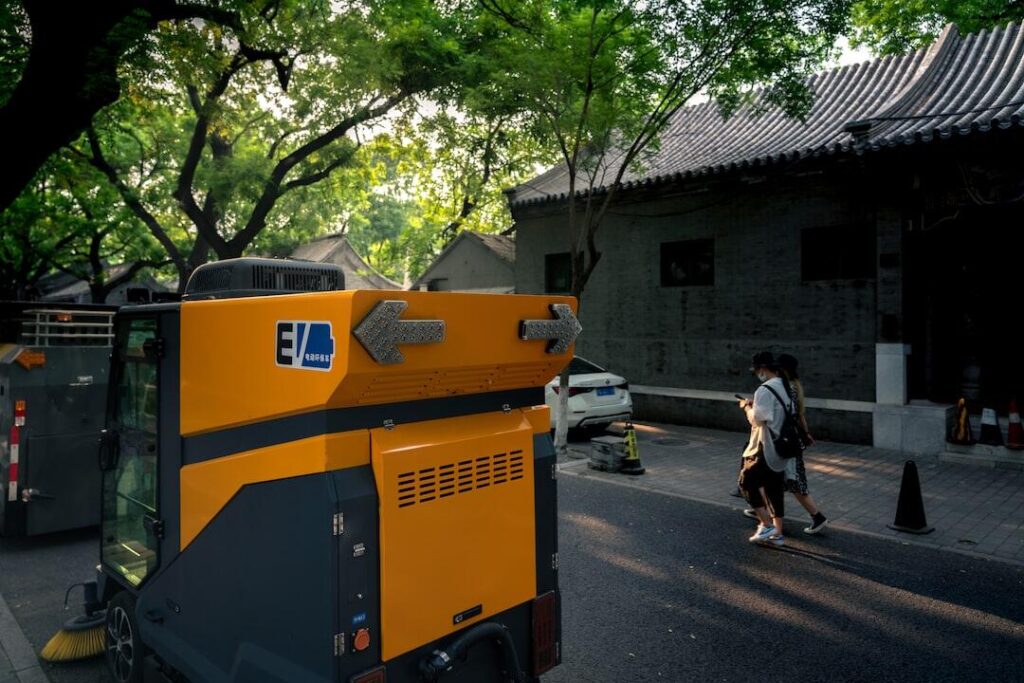Have you ever had your business go dark in the middle of the day?
When the power goes out, it can stop production, pause sales, and frustrate customers. For many businesses, even a short power loss means lost time and money. That’s why a good generator isn’t just a convenience – it’s a must-have.
Choosing the right generator, though, can be confusing. There are different types, sizes, and features to think about. This article explains what to look for when picking a generator for your business so you can make a smart, long-lasting choice.
Understanding Your Power Needs
The first step is knowing how much power your business actually uses. Every piece of equipment – from lights to computers to heavy machines – adds to your total energy demand. Make a list of what you want to keep running during an outage and check each item’s wattage.
Once you know the total, think about both starting watts and running watts. Some equipment, like air conditioners, use extra energy when starting up. If your generator can’t handle that brief power spike, it might shut down. Choosing a unit that meets both needs helps avoid power overloads.
Types of Generators for Businesses
Different business environments call for different generator types. The right kind depends on how much power you need, how often you’ll use it, and what kind of setup your facility allows. Below are several common types of generators used in business settings, each offering unique benefits.
Portable Generators
Portable generators are small, mobile units designed for temporary or emergency use. They’re ideal for smaller offices, construction sites, or events where mobility and flexibility matter. These models typically run on gasoline or diesel and can power lights, computers, and basic equipment during short outages.
Because they’re not permanently installed, portable generators need to be manually started and connected when power goes out. This makes them better suited for businesses that only experience occasional blackouts. They’re affordable and easy to store, though they require proper ventilation and fuel management to stay safe.
Standby Generators
Standby generators are the go-to choice for businesses that need uninterrupted power. These systems are permanently installed outside your building and automatically turn on when the main power supply fails. They connect directly to your facility’s electrical system, making the transition seamless.
These generators typically use natural gas or diesel fuel and can support your entire building for extended periods. They’re perfect for hospitals, restaurants, or data centers where downtime can lead to serious losses. Though they cost more upfront, their reliability and automation make them a solid long-term investment.
Inverter Generators
Inverter generators are known for producing clean, stable power that’s safe for sensitive electronics. Unlike standard generators, they convert raw electricity into smooth, consistent energy using advanced inverter technology. This makes them perfect for offices that rely on computers, servers, or high-tech equipment.
They also run more quietly than traditional models, which makes them ideal for noise-sensitive environments. Inverter generators use less fuel because their engines adjust speed based on demand. Although they usually provide lower power output, their efficiency and portability make them a top choice for small businesses.
Industrial Generators
For large-scale operations like manufacturing plants or warehouses, industrial generators are built to handle heavy electrical loads. These machines are powerful, durable, and designed for continuous operation under extreme conditions. They’re often custom-installed to match a facility’s exact power requirements.
Industrial generators usually run on diesel due to its energy density and long shelf life. They can operate for days without rest and are built with reinforced parts to withstand constant use. Businesses that depend on machinery or refrigeration often rely on these generators to keep production stable and safe.
Solar Generators
Solar generators offer an eco-friendly alternative for businesses looking to reduce carbon emissions. They convert sunlight into electricity using photovoltaic panels and store that energy in rechargeable batteries. While they may not yet match the raw power of diesel units, they’re gaining popularity for sustainable operations.
These systems work best for offices, retail shops, or remote workspaces with moderate energy demands. They operate quietly, require little maintenance, and save money on fuel over time. Many companies pair solar generators with traditional ones to balance cost savings and reliability.
Hybrid Generators
Hybrid generators combine renewable energy sources like solar or wind with conventional fuels such as diesel or gas. This combination creates a more efficient, flexible power system that can adapt to changing conditions. When sunlight is low or demand spikes, the fuel-powered engine kicks in automatically.
This type of generator is ideal for businesses that value sustainability but still need guaranteed uptime. It reduces fuel consumption while ensuring continuous operation during cloudy or high-demand periods. Hybrid systems often come with smart controls to manage energy flow between the different power sources efficiently.
Evaluating Generator Size and Capacity
Once you know your power needs, you’ll need to choose the right size generator. A unit that’s too small can overload and shut down. One that’s too big wastes fuel and money. The goal is to find the perfect balance for your energy use.
Add up the total wattage of your key equipment, then add a little extra – about 20 percent – for safety and future growth. If you’re not sure how to calculate, professional generator installation services can measure your energy needs and suggest the right capacity.
Considering Single Phase vs Three Phase Power
Smaller buildings often use single-phase power, which works well for lights, computers, and small devices. Larger facilities or factories usually need three-phase power, which handles heavier machinery better.
Check your current electrical setup before buying. The generator should match your power system to work safely and efficiently. Getting this part wrong can cause poor performance or even damage your equipment.
Reliability and Runtime
A good generator should run smoothly and reliably, even under pressure. Look at the runtime, or how long it can operate before refueling. For businesses that depend on steady power, a generator with a long runtime and sturdy engine is worth the investment.
It’s also smart to look for automatic transfer switches (ATS). These turn the generator on instantly when power goes out and off when it returns. With an ATS, you don’t need to do anything manually – your business stays powered automatically.
Maintenance and Support
Every generator needs regular maintenance to stay dependable. Choose one that’s easy to service, with accessible filters, oil ports, and clear controls. Some models even come with digital panels that remind you when it’s time for maintenance.
Make sure the manufacturer or dealer offers local repair services and replacement parts. A strong support network means help is nearby if something breaks down. This keeps your business running without long delays.
Noise Level and Placement
Powering your business shouldn’t mean disrupting it. Generators can be noisy, so consider the decibel level before buying. Many modern models include sound-reducing enclosures that make them much quieter, ideal for office or retail settings.
Placement is also key for efficiency and safety. Generators need good airflow to prevent overheating and proper distance from doors and windows to avoid exhaust buildup. Before installing, check local codes and guidelines for placement requirements.
Environmental and Safety Considerations
Besides performance, safety and sustainability should also factor into your decision. Generators produce emissions, and some areas have strict environmental standards. Choosing an EPA-compliant or low-emission model can help your business meet regulations while reducing its carbon footprint.
Additionally, make sure your generator includes safety features like automatic shutdown for low oil pressure or overheating. These prevent costly damage and ensure safe, reliable operation for years to come.
Budget, Cost, and Efficiency
When investing in a generator, cost is about more than the sticker price. You should also account for fuel efficiency, maintenance, and installation costs. A cheaper generator that burns more fuel or breaks down often will cost more in the long run.
Fuel efficiency matters most for businesses that run generators frequently. Look for models with eco-mode or variable speed features that adjust output based on load. This not only saves fuel but also extends engine life. Think long-term – a slightly higher upfront cost can lead to better savings over time.
Comparing Brands and Warranties
Not all generators are built the same. Established brands often offer better warranties, proven performance, and access to certified repair services. Always check how long the warranty lasts and what it covers – parts, labor, or both.
A strong warranty signals confidence from the manufacturer. It’s also a safety net for your investment. Before purchasing, read customer reviews and compare feedback on reliability and customer service. The right brand offers peace of mind along with power security.
Integration with Your Business Systems
Today’s generators aren’t just mechanical machines – many come with smart technology for real-time monitoring. Some can connect to your smartphone or building management system, giving you updates on fuel levels, performance, and maintenance needs.
This tech integration helps prevent downtime and makes operations more efficient. If your business relies heavily on IT systems or refrigerated goods, remote monitoring ensures quick responses to any issue. Smart-enabled generators can even alert you or your maintenance team when it’s time for servicing.
Planning for Future Expansion
If your business is growing, it’s smart to future-proof your generator investment. Choose a model that can handle a slightly higher capacity than your current needs. Expansion often means more equipment and higher energy use, so planning ahead saves future costs.
Adding modular generator systems is another option. These allow businesses to scale up power generation easily without replacing the entire unit. Flexibility like this keeps your business powered through growth, upgrades, and unexpected changes.
Fuel Storage and Backup Strategy
Even the best generator won’t help much if it runs out of fuel during a crisis. Developing a fuel storage and backup plan ensures you’re always ready. Depending on the generator type, you may need safe fuel storage tanks or a natural gas line.
Make sure your fuel source can last through extended outages. Businesses in storm-prone areas especially benefit from on-site fuel reserves and regular refueling contracts. Being prepared avoids unexpected shutdowns when you need power most.
Testing and Inspection
Routine testing keeps your generator reliable. Most experts recommend monthly or quarterly test runs to ensure all parts are functioning properly. Testing under load helps simulate real power demands, ensuring your system is ready for emergencies.
During these checks, inspect oil levels, filters, and connections. Early detection of wear or damage prevents major breakdowns later. Keeping a maintenance log also helps track performance and warranty compliance over time.
Installation and Compliance
Proper installation makes all the difference in performance and safety. Always hire certified professionals for setup to ensure compliance with electrical codes and manufacturer guidelines. Poor installation can lead to voltage issues or even fire hazards.
Your installer should also verify grounding, ventilation, and connection points. Compliance with local building and safety codes isn’t just good practice – it’s legally required in many areas. Doing it right the first time guarantees smoother operation and reduces liability risks.
Training and Operation
Once your generator is installed, make sure your staff knows how to use it. Create a simple checklist for turning it on and off safely. Practice once or twice a year so everyone feels confident during a real emergency.
You can also assign one or two people to handle monthly tests and maintenance checks. Having trained employees keeps things organized and ensures the generator is always ready to go.
The Power to Keep Business Moving
Power interruptions are unpredictable, but your response doesn’t have to be. Choosing the right generator is about preparation, foresight, and understanding your business’s unique needs. A well-selected unit provides stability, safety, and peace of mind when the grid goes down.
Reliable power keeps your business running smoothly through every challenge. Whether you manage a small office or a large facility, evaluating your options carefully ensures a lasting, cost-effective solution.
We hope you enjoyed reading this article. If you found it helpful, be sure to check out Your Business for more informative resources.






